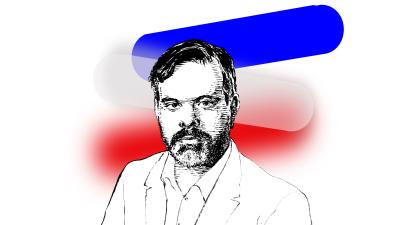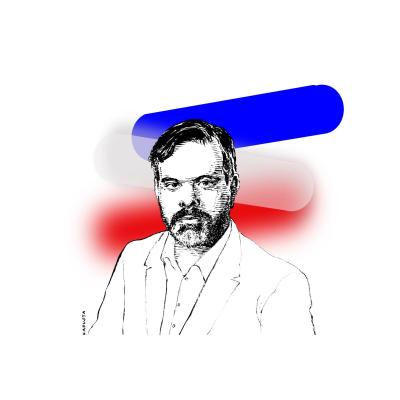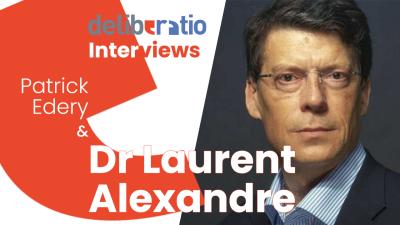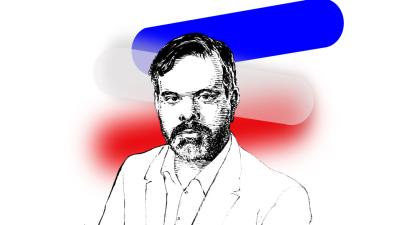The French radical left (the "La France Insoumise" party) followed by almost all parties on the left, centre and right is going through all the steps to pass a constitutional bill to enshrine "the freedom of women to terminate their pregnancy in the Constitution".
"I say this with all my conviction: abortion must remain the exception, the last resort for situations with no way out. But how can we tolerate it without it losing its exceptional character, without society appearing to encourage it? First of all, I would like to share with you a woman's conviction - I apologise for doing so before this House, which is almost exclusively composed of men - that no woman takes recourse to abortion out of the blue. You only have to listen to women. It is always a tragedy and it will always be a tragedy.” This excerpt from Simone Veil's famous speech to the National Assembly to pass her law decriminalising abortion for the first time in France will surely be almost unanimously approved. On such a dramatic subject, which touches on fundamental rights, it would be good to try to have a debate without invectives, and to ensure that everyone takes time to reflect.
According to science, a foetus would not feel pain before 24 weeks, as its brain is not yet formed. For some, human consciousness would not appear before 33 weeks of pregnancy. All this allows many scientists to affirm that up to 6 months the embryo is alive but only in the same way as a set of tissues and cells (like a hand or an eye) is alive - and becomes a human being only when it gains consciousness. However, the use of science to define or prioritise humanity in this way evokes some bad memories. Also, for many believers such momentary transition from the status of a collection of cells to that of a human being as defined by science or law is artificial. For practising Christians, Muslims, Buddhists or Jews, and as John Paul II stated, an abortion is the deliberate suppression of an innocent human being. It would be easy to call each other murderers or extremists, but it would be more democratic to debate together and more intelligent to ask questions. Let's start with a few subjects that are unfortunately never discussed.
First of all, there is an intolerable omission: it is women in the most precarious situations who have the most abortions. How is this possible in a country as rich as ours? More generally, why is no health policy implemented to reduce the number of abortions? This is a subject on which everyone should be unanimous, as everyone agrees that every abortion is and will remain a tragedy. According to an IFOP survey of 2020, 92% of women think that abortion leaves psychological scars that are difficult to live with. In countries equally progressive as France, such as Germany and Switzerland, abortions are, in relative terms, half as numerous as in France. More than two thirds of French people believe that the society should do more to help women avoid having an abortion. Yet, can you name a single measure taken in the last 25 years to achieve this?
As French law currently stands, surgical abortion can be performed up to the end of the 14th week of pregnancy. Medical termination of pregnancy (MTP) can only be performed if the continuation of the pregnancy would seriously endanger the health of the woman or if there is a strong probability that the unborn child will suffer from a particularly serious condition recognised as incurable. There is no time limit to the termination of the pregnancy, except of course for the birth of the child. So a foetus with Down's Syndrome can be aborted at any time - even after 33 weeks, when all scientists consider the foetus to be conscious and therefore a human being according to science. How can this be explained when, I think, I hope, everyone will agree that people with Down's Syndrome are human beings like everyone else? Is this a form of eugenics? In Iceland, since 2017, no births of people with Down's syndrome have been recorded. Isn't it discriminatory and stigmatising to allow abortions of foetuses with Down's Syndrome beyond the legal time limit of 14 weeks? Are the lives of people with Down's syndrome any less important? Is it not disturbing that the Franco-German channel ARTE, which claims to be "intellectual", broadcasted in 2018 a report making abortion part of disability policy? Is it not vital to ask these questions in a society? By accepting such discrimination of foetuses with Down's syndrome, how can we not fear an eugenic evolution of our society? Why would refusing a Down's syndrome child be more acceptable than selecting foetuses with an IQ above 140? The worst thing is that many of you will think: "yes, why not such a selection?” Well, first and foremost because, as less than 1% of the population has an IQ above 140, so over 99% of you would have been aborted. Because 99% of the wonderful carers, artists, sportsmen, pastry chefs, 99% of your loves, your friends, your parents, your children would never have been born.
Few French people know this, and I am linking to an article in the newspaper "Libération" (https://www.liberation.fr/checknews/2020/08/04/projet-de-loi-bioethique-les-deputes-ont-ils-autorise-l-avortement-pour-detresse-psychosociale_1795927/), so much disbelief is felt when I inform my relatives of the fact that, since 2020, it is possible to have an abortion up to 9 months for "psychosocial distress". The law in France considers it murder to end the life of a 9-month-old baby who has just been born, and legal to end the life of a 9-month-old baby who is still unborn. Do you know the method used in these cases? The doctor injects the "foetus" with a lethal injection through the mother's abdomen and she then goes into labour. For abortions beyond 14 weeks and up to 24 weeks, as Professor Israël Nisand points out in "Le Figaro": "at 14 weeks of pregnancy, the foetus measures about 120 millimetres, and its head is ossified. Before its removing, the foetus must be dismembered and its head crushed. This is unbearable for many professionals. On hearing this, many people prefer to stop all discussion, as there is a cognitive dissonance between their values, thought systems and representations. But it is imperative to keep all this in mind for two reasons: firstly, to understand the importance for any person practising medicine to keep their freedom of conscience and not be coerced or sanctioned for refusing to perform an abortion. And secondly, to have an informed opinion on the proposal in this article to put the right to abortion into the French constitution to a referendum.
As it stands, the proposed law (as passed by the Senate, to revise the French constitution) states that: "The law determines the conditions under which a woman's freedom to terminate her pregnancy is exercised." If this sentence is integrated into the French constitution, anyone who opposes or questions abortion will be considered by this token as an opponent to the equality of men and women or as a supremacist who considers groups of people inferior because of the colour of their skin. If the freedom to have an abortion becomes constitutional, it will be superior to the freedom of conscience, which is only provided for by law. Thus, within the framework of this hierarchy of norms (the Constitution is superior to the law, which is itself superior to the decree), the courts have authorised dismissal of who refuse to deliver pills for medically induced abortions. This is because pharmacists do not enjoy the legal conscience clause allowed to doctors. The European Court of Human Rights has ruled that discrimination in the hiring of a midwife because of her refusal to perform an abortion does not violate her freedom of conscience. Also, a doctor refusing to give a lethal injection to a 9-month-old unborn baby because of the mother's psycho-social distress could face disciplinary and legal action.
Take a moment to reflect: even before the freedom to abort became constitutional, did you hear these questions and information, given above, in the mass media? Yet it would be useful and democratic for society to ask itself these questions regularly and to be aware of this information. Imagine what it will be like when the right to abortion becomes part of the constitution. Even if you do not agree with the Catholic conception of a fundamental right to life and physical integrity of every human being from conception to death, is it not good and healthy for our society that people tirelessly and peacefully defend it?
At present, it is impossible to express such doubts or questions publicly without being immediately condemned. Only the holding of a referendum could open up a real public debate. In order to revise the constitution, the new text must be adopted in identical terms by the National Assembly and the Senate, and then approved by referendum. But no party wants a referendum. On the right, it would create too much opposition between "for" and "against". On the left and on President Macron's side there is fear of losing the referendum. Indeed, if nearly 80% of the French are in favour of allowing abortion, a very large majority of French people do not believe that the right to abortion is in danger. Also, in the event of a referendum to enshrine the freedom of abortion in the constitution, it is possible that few pro-abortion French people will turn out, while those who are against Emmanuel Macron and/or abortion will mobilise en masse. All political parties would prefer the President to take the text and initiate the revision. The referendum will be then no longer mandatory; it will be enough to have a three-fifths majority of the votes cast (which is already acquired) of the two chambers of Parliament meeting in Congress. In the latter case, none of the questions we have asked ourselves will ever be asked again.
Read also
Would De Gaulle be pro-Russian today?
This question may seem incongruous to many of our European readers for whom the General is the symbol, like Churchill, of resistance to invasion, of refusal to submit to the law of the strongest. The Second World War showed us that there are two schools of thought when faced with an invader.
Patrick Edery
Six great misunderstandings about Russia
To read the thoughts of many French opinion leaders and their supporters on social networks about Russia is to despair of humanity. They base almost all their analyses on misunderstandings that can only lead to erroneous conclusions.
Patrick Edery
Europe's Southern Flank Under Russian Attack
We underestimate the determination of the KGBists in power in Moscow to take revenge on the West so much that we refuse to see their attack on our southern flank.














Comments (0)